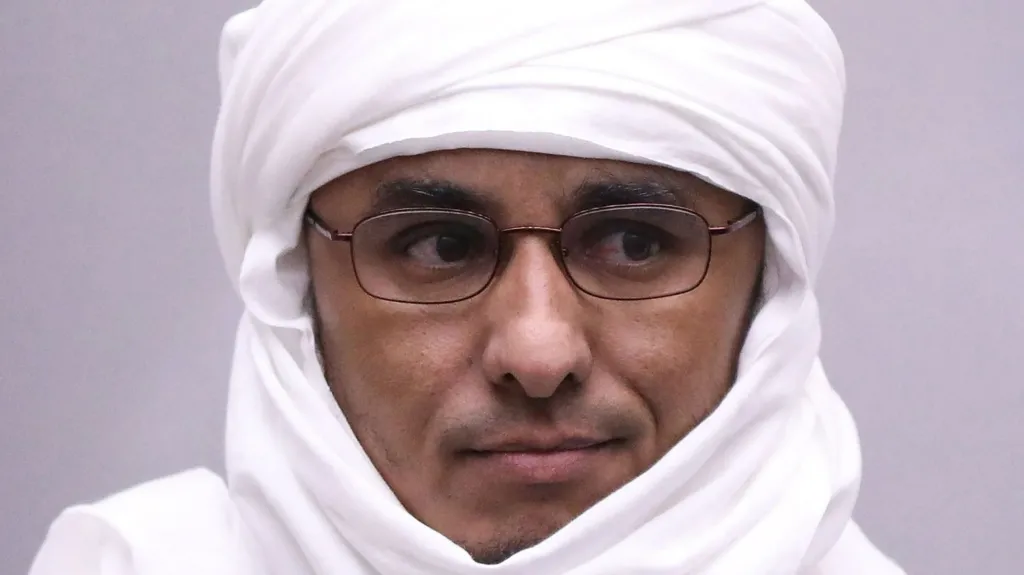Jihadist police chief of Timbuktu jailed for war crimes
3 min read
AFP

AFP
The International Criminal Court (ICC) has sentenced al-Hassan ag Abdoul Aziz ag Mohamed ag Mahmoud, the former head of the Islamic police in Mali’s Timbuktu, to 10 years in prison for war crimes. This verdict comes after he was found guilty of overseeing acts of torture and brutal punishment in the northern Malian city during the 2012 occupation by the al-Qaeda-linked Ansar Dine group.
Al-Hassan, 47, was convicted for his role in orchestrating a “reign of terror” following Ansar Dine’s takeover of Timbuktu. He was responsible for overseeing the public amputation of limbs and the violent flogging of local residents, including children. These acts were carried out in the name of enforcing a strict interpretation of Islamic law.
Despite the severity of his actions, al-Hassan was acquitted of charges related to sexual violence, including rape and sexual slavery, as well as the destruction of Timbuktu’s ancient cultural sites. While the ICC acknowledged that crimes of sexual violence took place under the rule of Ansar Dine, it determined that al-Hassan was not directly responsible for these offenses. This decision has sparked some disappointment among human rights organizations, as they had hoped for broader accountability regarding gender-based crimes.
The sentencing took place at the ICC in The Hague, where presiding judge Kimberly Prost commented that the 10-year prison term was appropriate given the “gravity of the crimes” and al-Hassan’s role in the suffering inflicted on the people of Timbuktu. Judge Prost emphasized that the sentence reflected the international community’s condemnation of the crimes committed and acknowledged the significant harm caused to the victims of al-Hassan’s actions.
Al-Hassan’s trial was seen as a major step in the fight against impunity for war crimes committed during the Mali conflict. He was arrested in 2018 after being handed over by the Malian authorities, five years following the liberation of Timbuktu by French forces. The city, once a thriving center of Islamic learning, had been under jihadist control for months, during which it suffered a series of brutal atrocities.
The ICC’s judgment also casts a spotlight on the wider context of Mali’s political instability, which was fueled by an insurgency rooted in the Tuareg rebellion. Ansar Dine, the group to which al-Hassan belonged, took advantage of this ethnic uprising to seize control of northern Mali, including Timbuktu, in 2012. During this period, the city’s rich cultural and historical heritage became a target for destruction, with jihadists seeking to erase elements of Timbuktu’s identity that they deemed un-Islamic.
While al-Hassan’s sentencing brings some measure of justice for the crimes committed, it is part of a larger effort to hold those responsible for atrocities accountable. Another key figure in the destruction of Timbuktu’s cultural heritage, Ahmad al-Faqi al-Mahdi, was sentenced to nine years in prison by the ICC in 2016. Al-Mahdi admitted to leading the destruction of several ancient mausoleums and religious shrines in the city, a UNESCO World Heritage site that dates back to the 13th century.
Although the charges against al-Hassan did not include the destruction of Timbuktu’s mausoleums, the case highlights the devastating impact the jihadist occupation had on the region. The city, which was added to the UNESCO World Heritage list in 1988, was once a prominent intellectual and cultural hub of the Islamic world, renowned for its scholars and ancient libraries. The destruction of its historic sites by jihadists during the 2012 occupation was widely condemned.
Human rights organizations and the international community have hailed the ICC’s verdict, although some have expressed frustration over the acquittals on sexual violence charges. The ICC’s investigation into the crimes committed in Mali and the Sahel continues to be a critical part of ongoing efforts to address war crimes in the region. Victims of these atrocities are now awaiting reparations, which will be addressed separately in the coming months.
Al-Hassan has 30 days to appeal the decision, although his legal team has yet to indicate whether they plan to challenge the verdict. The case has raised important questions about accountability for crimes committed during the conflict in Mali, and it is expected to set a precedent for future trials of individuals involved in similar atrocities.
For many, this conviction is a step toward justice for the people of Timbuktu, whose lives were irrevocably altered by the violence and destruction that followed the 2012 takeover by Ansar Dine and other militant groups.